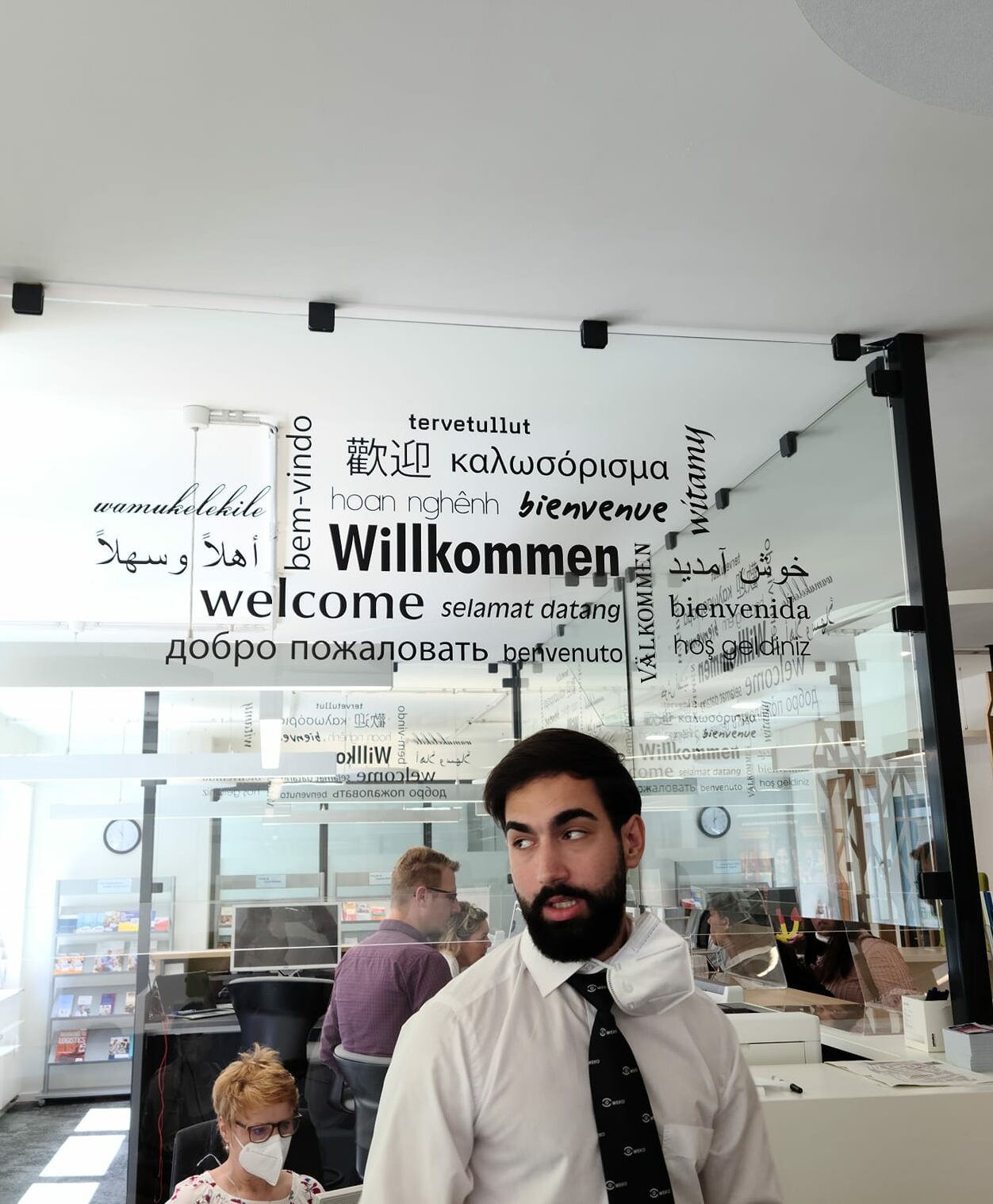Minority issues in second language pedagogy
My interest in minority issues in second language pedagogy and the German as a second language classroom grew out of my post-PhD experiences in classrooms with diverse sets of students. Of particular importance was my first job after my PhD, where I worked, as part of a larger grant from the American German Cultural Foundation, as an adjunct instructor at Morehouse College and Atlanta Technical College. Both of these institutions are minority serving, and almost all of my students were Black. Before teaching in this environment, issues around race, ethnicity, gender identity, accessibility, and other minority issues were not really in my scope of work. However, I soon realized that as a someone who’s job it was to also recruit and retain students, I needed to find better ways to engage them and help them find connections with what they often perceived as a language spoken primarily white people.
My work in this area led to the development of many important course materials that I use today that allow students from all backgrounds to see themselves as speakers of German and people that have a place in German studies. To that end, research with students has also been a fruitful way to encourage them to explore identity issues in German.
In this area, I have primarily worked with students on research related to LGBTQ+ issues, especially on the ways in which trans and non-binary speakers express their identity through pronouns. On project I conducted with an Oxford undergraduate, Julie Shi, investigated the various pronouns and neopronouns German speakers use to refer to trans and non-binary speakers in the 3rd person. Julie and I presented this work at two conferences, the Lavender Languages and Linguistics Conference and the American Conference on the Teaching of Foreign Languages, and an article is currently under review at the Journal of Language and Gender. I am continuing this work to expand beyond German with an Oxford Research Scholar this year to compare neopronouns in multiple languages. In addition, I proposed a special issue for Die Unterrichtspraxis/Teaching German, which is now underway with two co-editors, Katherine Kerschen from the University of Washington in St. Louis, and Claire Scott, from Vanderbilt University. The special issue will be published as the Spring 2025 issue of UP/TG.
This has also led to my current book project on how forced migrants to Hamburg, Germany from Syria and the Ukraine deal with learning German as a second language. The bulk of the data for this book is coming from interviews with Syrian and Ukrainian forced migrants, along with German-as-a-second-language teachers, and education policy makers, which I am currently conducting. This book is currently under contract with DeGruyter in the Migration series and my co-author, Richmond Embeywa and I hope to have a final manuscript to the publisher in 2026.
